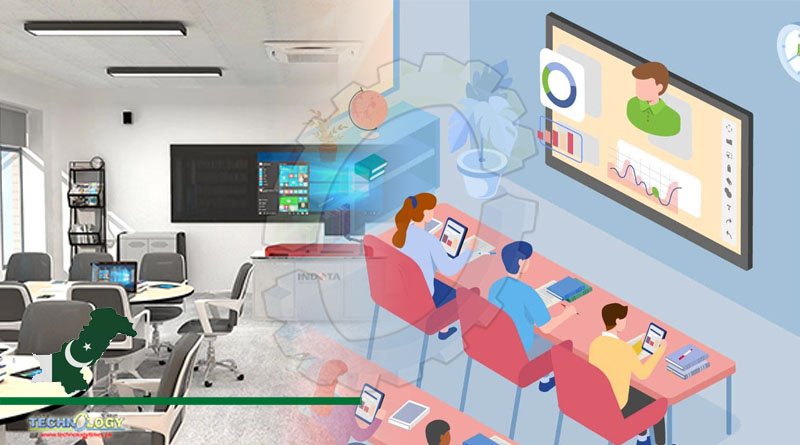“The China-Pakistan Economic Corridor (CPEC) needs to be upgraded to the China-Pakistan Digital Corridor (CPDC), according to remarks made by President Xi Jinping last year.”

“I truly hope that the CPInS lab can and should serve as the foundation for Pakistan’s digital strategy ” the creator of the first China-Pakistan Intelligent Systems (CPInS) Lab, Pakistani Ambassador to China Moin ul Haque, stated while recently visiting the Guangzhou Institute of Software Application Technology (GZIS),
“The China-Pakistan Economic Corridor (CPEC) needs to be upgraded to the China-Pakistan Digital Corridor (CPDC), according to remarks made by President Xi Jinping last year.”
The CPInS Lab was formally established at the Pakistan National University of Science and Technology (NUST) at the beginning of 2022 thanks to the collaboration of NUST and the Guangzhou Institute of Software Application Technology.
Numerous studies are currently being conducted in a systematic manner. “Currently, we have made significant advancements in fields like AI recognition, localization, and UAV control systems. “Next, our lab will begin implementing smart city solutions in Pakistan,” the CPInS Lab’s Director, Dr. Wu Jun, stated.
Moin ul Haque claims that his main concerns are how to use artificial intelligence to spark Pakistan’s technological revolution so that Pakistan can develop more quickly into an emerging industrial nation and how to use AI to fortify Pakistan’s security infrastructure. “I hope Pakistan’s version of China’s Zhongguancun Technology Industrial Park succeeds. “Without a doubt, the first step has been taken in this lab.”
The two main projects currently in development in smart cities are GymBot and the Cogniser-V1 intelligent video analysis project, a pilot project with the Government of Pakistan. GymBot uses AI and computer vision algorithms to sense people lurking in specific areas and generate warnings, while Cogniser V1 uses facial recognition and license plate recognition.
The latter is intended to be a deep learning device that can be used as a supplement in a variety of gym settings and as a teaching tool for regional security guards.
As the Belt and Road Initiative celebrates its tenth anniversary this year, the CPInS Lab will highlight the cutting-edge results of the two nations’ collaborative efforts in artificial intelligence and smart cities.
“Following that, we will work more closely and comprehensively with Pakistan to develop artificial intelligence and conduct digital 3D scanning of Gandharan art. In order to preserve, restore, and replicate the thriving Gandharan art, the lab will use algorithms “The reporter was informed by Xiang Yang, director of the NUST China Study Center.
Pakistan’s infrastructure is growing rapidly as a developing nation. The CPInS Lab has a lot of potential for the future because a lot of road cameras and other equipment have not yet been intellectualized.
In general, Pakistan’s artificial intelligence industry has not yet developed, but the nation never lacks for sci-tech talent. With confidence, Ambassador Haque concluded, “Pakistan is fully capable of becoming an artificial intelligence development hub in South Asia and the wider region through continued cooperation with China.”